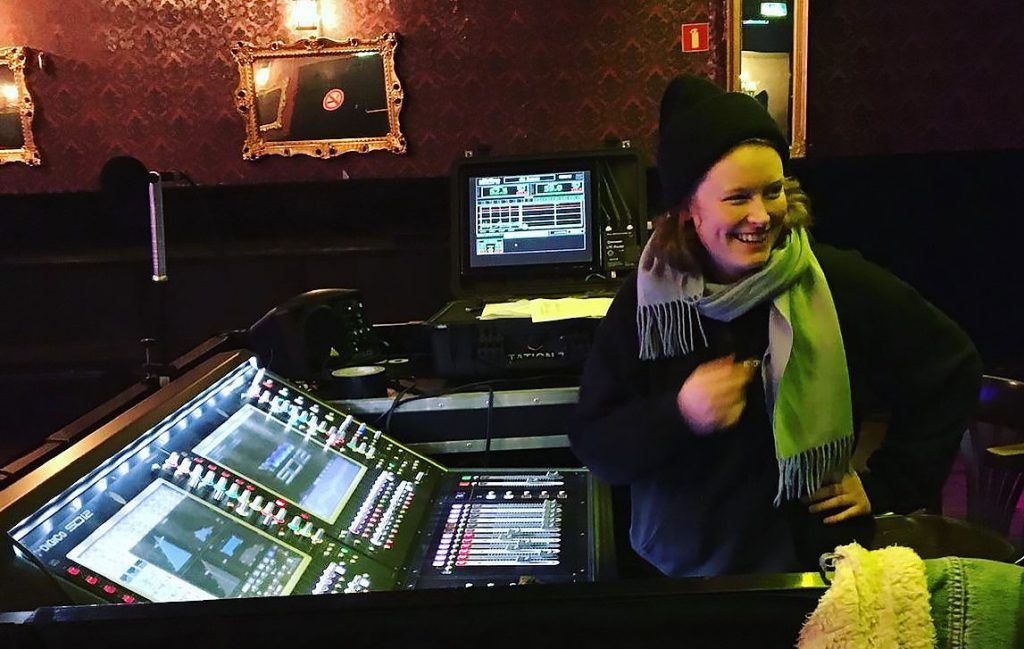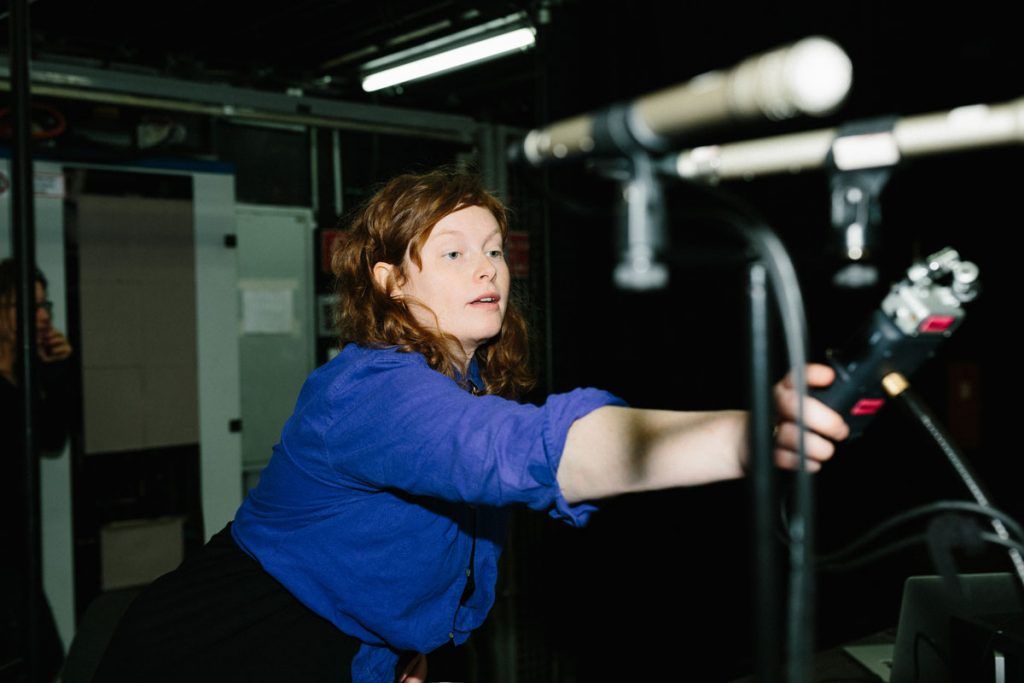Women in Pro Audio: Marlene “Marle” Brüggemann Women in Pro Audio: Marlene “Marle” Brüggemann...
“Every day, I am incredibly proud of myself for being brave enough to do this job and trying to get better, earning my money, and providing for myself and the ones I love. And when my sound vision and the actual sound outside match, it’s a fantastic feeling for me. That’s when I sometimes leave with a few tears of joy and a smile during mixing.” – Marle Brüggemann
Working in live sound isn’t for everyone. And those that do get into the industry often do so out of a love for the music, the camaraderie, and being able to create an unforgettable experience for everyone out in the crowd and on the stage. Live show euphoria is a powerful catalyst for generating lasting core memories, and it brings together so many different types of people – because of that, the people working behind the scenes putting on these incredible shows deserve kudos and acknowledgment just as much as the artists do.
Meet Marle
Meet live sound engineer Marlene “Marle” Brüggemann from Austria. An outspoken activist, Marle’s live sound journey didn’t begin immediately. Working two jobs, Marle sacrificed much of themself to get where they wanted. With battle cries like “Down with the patriarchy” and “Capitalism kills,” Marle has forged their own path in working in live sound.
“I also don’t see myself only as a woman,” clarifies Marle. “My pronouns are she/her and they/them. But as far as industry challenges, I’ve had to learn to confidently take up space behind the mixing desk and stand my ground when I sometimes needed to tell someone to get back or take three to five steps away from me and the desk. I’ve also learned to trust in my decisions, ask as many questions as possible, and understand that I don’t know everything.”
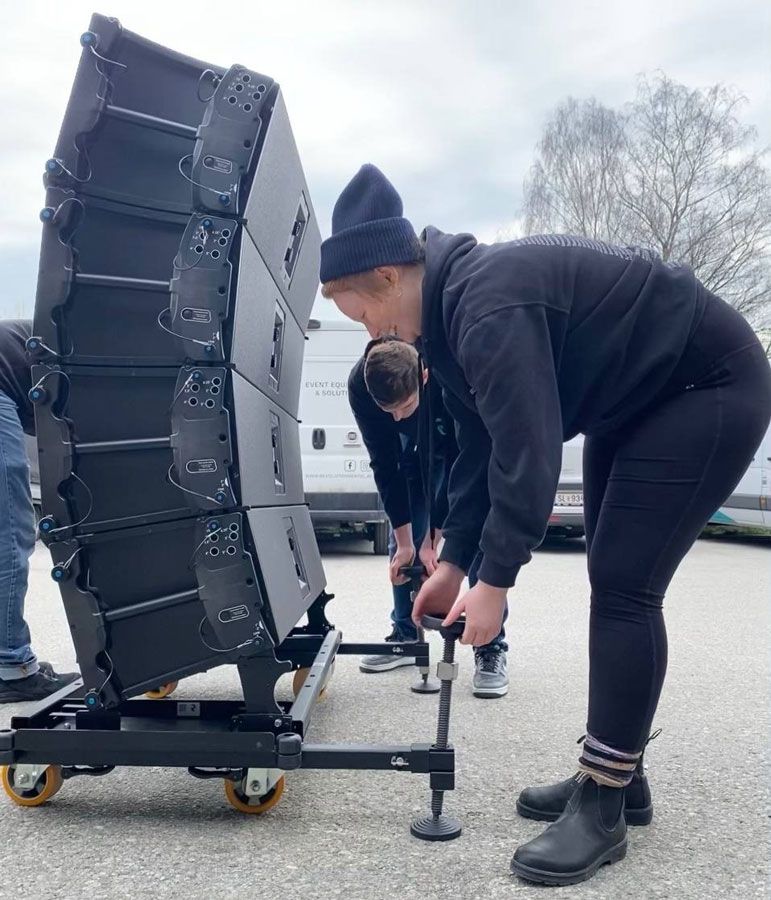
The Music Journey
Like many other people, Marle had no idea this was what they wanted to do when they were younger. In fact, Marle originally wanted to be a marine biologist, then later thought about being a chemist. “I was heavily into music and tech. My mother and her family are composers and musicians. As a kid and young teen, I made my own speakers and learned soldering and repairing cars with my dad. My grandfather taught my brother and me to do all kinds of stuff we were interested in. He introduced us to computers and encouraged us to play computer games and learn with computer programs,” Marle recounts.
“As a teenager, I found a calling in political activism and became a heavy music consumer. I attended many live concerts, always listening to music on my minidisc player from my dad and, much later, on an mp3 player or iPod. I also took lessons and played Viola in orchestras.”
Marle started their live sound journey by shadowing established sound engineer acquaintances turned friends from the local pub where Marle worked. “I worked for free or minimal payment at small music festivals and established local venues like Konzerthaus Wien, Arena Wien, and other small venues and music event organizers. I then started recording and mixing EPs and LPs for befriended local underground bands touring with the Vienna-based band DIVES.”
When talking about their career now, Marle says, “I mostly tour with bands, work at music or performance festivals, and organize sound tech training and the annual band camp – a “pink noise camp” in Austria – for FLINTA (Female, Lesbian, Intersex, Trans, and Agender) teenagers.”
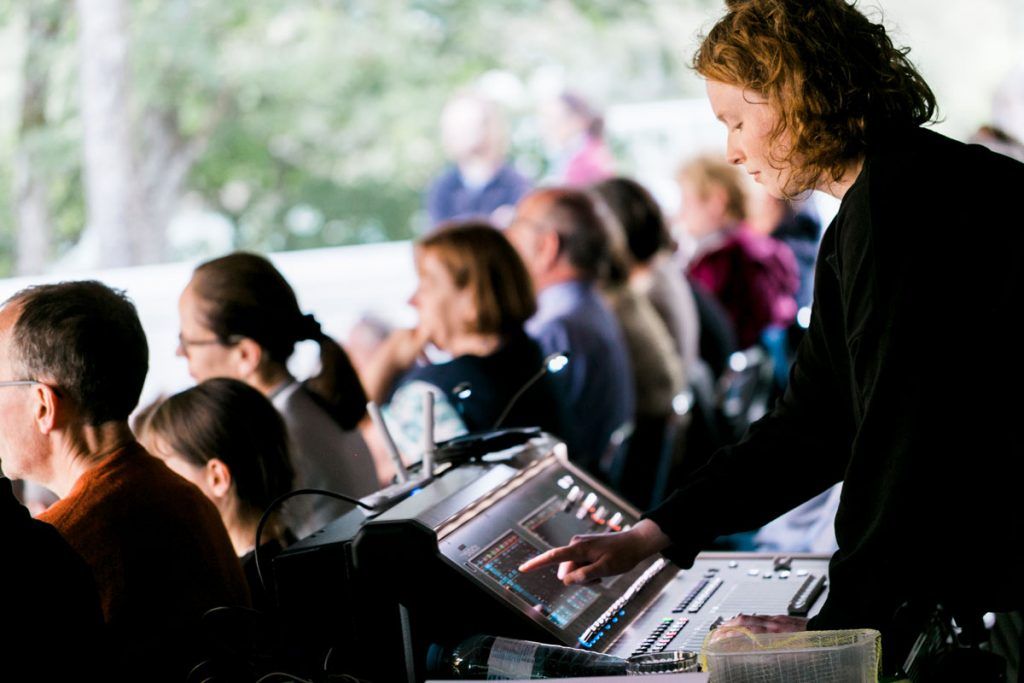
Overcoming Challenges
Working two jobs as a beginner sound engineer and a bartender was tough for Marle. “I felt the pressure of not earning enough money to provide for myself without my bar job. But I needed to be hyper-flexible, which caused me not to get enough rest, developing mental and physical problems. It was a snowball effect of unhealthy activities. I had this mindset that I had to ignore my basic needs like eating, sleeping, resting, and having a social life. I felt I needed to sacrifice my health to become a good sound engineer – which I eventually learned is false. I thought I needed a collection of “war stories” to be respected by my colleagues.”
While Marle loves their job, the industry could use some changes, according to Marle: “Getting rid of the ‘being rude and showing off’ culture throughout the whole industry, including all sound engineers, regardless of their gender. It’s important to be inclusive and open. I’d also like to destigmatize taking care of your mind and body.”
Advice
Marle advises others working in pro audio: “If you don’t know a piece of gear, get informed beforehand: read the manual, look things up on YouTube, or ask colleagues. Getting hands-on with something always works best. If someone owns a piece of equipment, ask if you can use it to get familiar.” She continues, “If you ever feel overwhelmed, ask for help. Get out of your comfort zone regularly and try new equipment. Learn different (mic-ing) techniques, implement a new gear or workflow, join a training class, and challenge your bias towards brands, gear, workflow, and your routines once in a while. Listen to your known tracks through the local PA for two to three minutes and walk around the audience area before mixing. Stay critical and curious, and enjoy redundancy, redundancy, and redundancy. And always… be open and have effective communication and teamwork!”
Marle lists three skills that people working in the pro-sound industry should focus on: Technical literacy, communication, and, last but not least, self-care. “And whenever you hit a roadblock on a job, take a breath, and take it step by step. Turn to a colleague for help and a friend or partner for comfort.”
For honing live audio skills, Marle turns to colleagues, manufacturer’s online training, YouTube, “The good old manufacturer manual, sound engineering online communities and groups (WILM, Sound Systers, Sisters of Music, Austrian sound engineer group…), podcasts (Roadie Free Radio), books (Touring and Mental Health by MITC), Instagram accounts, and I went to ISE 23 in Barcelona for the first time this year and liked it!”
Favorite Shows
Marle loves that their job takes them to various countries and places where they can learn about new communities. Marle also gets to work with and listen to many different music styles, which are big highlights for them. Recounting some favorite shows and tours, Marle says, “When I was just starting, I really enjoyed my internship at Konzerthaus Wien in 2018. They just got a new L-Acoustics PA with Kara with SB18 and KS28 subs as mains, and some fills for the front, center, and balconies. A great team was working there at that time, and we just measured and tried different setups almost every day. Being in an abundance of great colleagues, various acts, and professional equipment was really exciting and inspiring! Looking back, I’m really glad I got to be a part of that.”
Marle then brings up a recent tour that they enjoyed: “I loved being on tour and mixing front-of-house for Kerosin95, a hip-hop/pop act, because the fans were extraordinary, so giving, and amazing. A fan group even printed their own tour shirts with all the tour dates and their names. At each of their shows, I wanted to provide the fans and Kerosin95 with the best sound I could, so they could have the best and most memorable night together. I was really moved by a lot of their shows and audiences. I also appreciated doing the last My Ugly Clementine support tour for the German band Von Wegen Lisbeth in 2022. I have been mixing FOH for My Ugly Clementine since the summer of 2020.”
Marle continues, “I also worked at some great and large main gigs and festivals. Mixing for over 15,000 people at Berlin Tempelhof Sounds was an almost surrealistic example afterward. While working, I usually don’t realize how many people are in the audience. The support tour was critical for me and my hearing experience because I mixed in some venues like Palladium in Cologne. Mixing for this venue’s size expanded my room acoustics experience and challenged me to do better and sharper mixes.
“I got to nerd out about setup and improvements with Von Wegen Lisbeths’ Monitor Sound Engineer for several days, which I loved. Generally, I just love when there is a spark during a workday where I feel that the plans and ideas I prepared work out and sound really good. That makes me happy and proud. Then the size and the type of production don’t matter.”
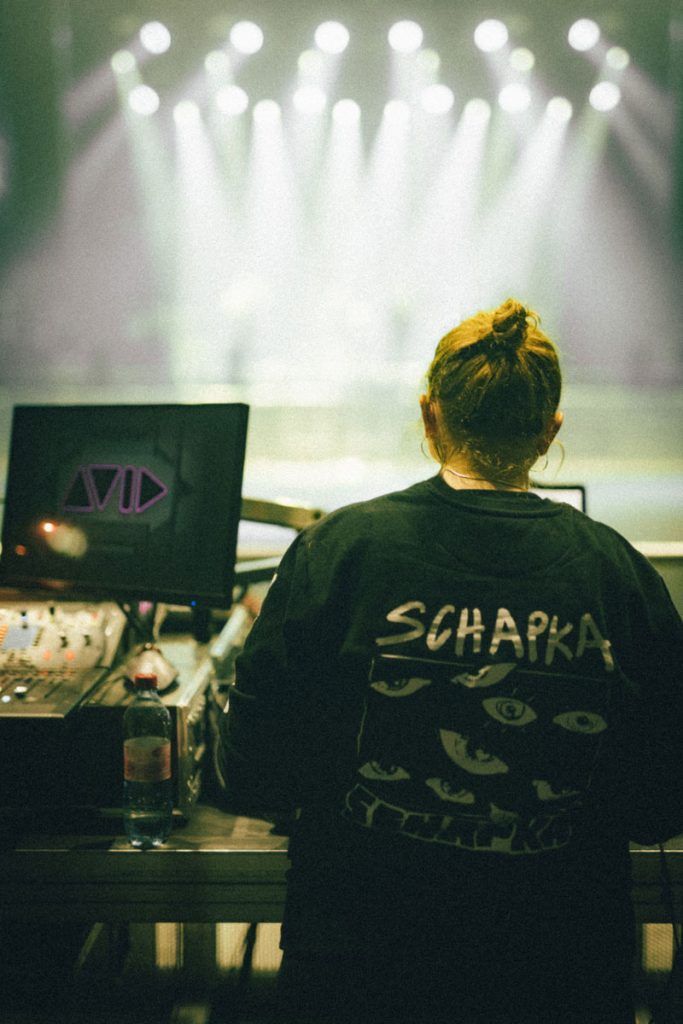
Anecdotes
Working with different events always means diving briefly into a specific group, niche, or community. Marle says, “I love that! Once, I was mixing a festival show for Viech, an Austrian band, at a festival in the countryside of Austria. Right during the show, a young drunk person started spitting fire in front of the stage. The main singer almost got his brows burnt off, but he still kept playing! Even though he was quite surprised. Afterward, the band’s drummer got some DIY fire-spitting introduction and did some fire-spitting himself. We all watched in amazement. Another time I mixed a concert in a Llama and Alpaca barn! All the animals just stared at the artists during the concert, and the audience sat on hay!” Marle says with a laugh.
“One of the craziest things that happened to me while working was when a local festival sound engineer touched my faders and attempted to “mix” while I was mixing a show. They crossed a line. Some “clarifying” argument was needed, and that’s all I’ll say about that.”
The Future of Live Events
For the future of the industry, Marle encourages industry manufacturers, event producers, and live event professionals to have more awareness regarding the CO2 footprint of the event industry. Marle also calls for more affordable educational resources outside the SAE Institute and other Universities. “I’d also like to see more spatial audio implementation in live touring and festival sound, keeping an open and welcoming culture in the industry, and thinking about making event jobs accessible to disabled folks. All of these things make better audio and happier audio engineers!”
Loving the Job
“Every day, I am incredibly proud of myself for being brave enough to do this job and trying to get better, earning my money, and providing for myself and the ones I love. And when my sound vision and the actual sound outside match, it’s a fantastic feeling for me. That’s when I sometimes leave with a few tears of joy and a smile during mixing.”
